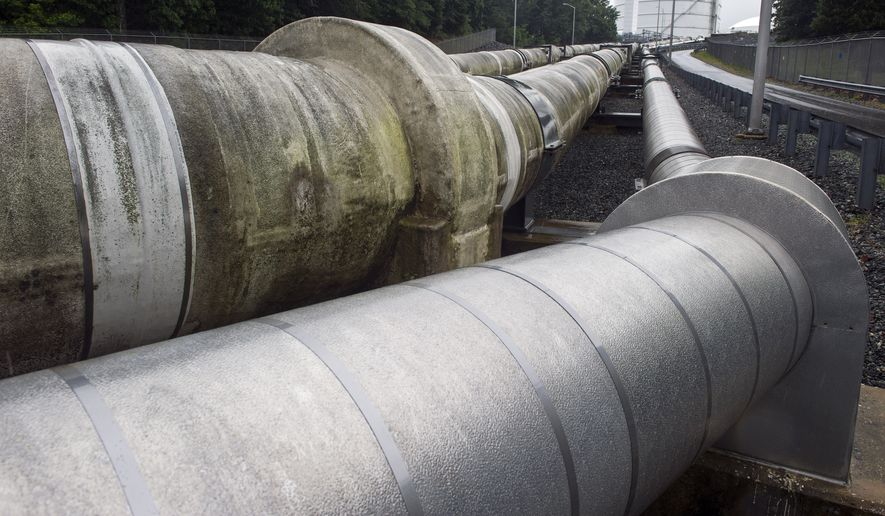The Obama administration on Thursday granted final approval to a $3.8 billion natural gas export facility in Calvert County, Maryland — the first gas export site on the East Coast — but environmentalists sued within hours to stop the project.
After an extensive review that spanned multiple federal agencies, the Energy Department gave the green light to the Cove Point liquefied natural gas terminal. The move allows the project’s operator, Virginia-based energy giant Dominion Resources Inc., to ship fuel to countries with which the U.S. does not have free trade agreements.
The site, expected to come online by late 2017, is now authorized to export up to 0.77 billion cubic feet of liquefied natural gas per day for the next 20 years.
The export site is the latest milestone in the revolution in U.S. production and supply brought on by hydraulic fracturing, or fracking, and other innovative techniques that are upending traditional global energy markets.
“The development of U.S. natural gas resources is having a transformative impact on the U.S. energy landscape, helping to improve our energy security while spurring economic development and job creation around the country. This increase in domestic natural gas production is expected to continue,” the Energy Department said in a statement.
Analysts weighed economic, security and environmental factors before giving the green light, the department said.
The approval underscores how the administration, after seeming skeptical of liquid natural gas exports for years, has come around to the idea and now embraces shipping U.S. fuel abroad. White House officials in recent months have spoken highly of the economic benefits of LNG exports, which are subject to stringent approval processes that can last years.
The Cove Point project went through a separate review process with the Federal Energy Regulatory Commission, which granted approval this fall.
Thursday’s decision marks the sixth time the Energy Department has granted an LNG project permission to export fuel to countries that do not have free trade pacts with the U.S., the world’s largest producer of natural gas.
But Cove Point’s future is in doubt with a lawsuit filed by a coalition of powerful environmental groups.
The organizations aren’t objecting specifically to the approval, but are challenging the Federal Energy Regulatory Commission’s decision to allow Cove Point to move forward.
Environmental groups urged the commission to revisit its decision, but the agency this week rejected a motion for a rehearing.
“Exporting LNG will lead to more drilling — and more drilling means more fracking, more air and water pollution, and more climate-fueled weather disasters like record fires, droughts and superstorms,” said Nathan Matthews, a staff attorney with the Sierra Club, one of the groups that joined the lawsuit. “FERC consistently fails to take the full impact of fracking into account when it considers whether to green-light LNG exports, and it did so again in the case of Cove Point.”
Dominion said in a statement that it was confident the court would uphold its right to build the export site.
Moving forward, oil and gas industry leaders say the Energy Department must move more quickly to approve LNG export facilities. More than 30 LNG export applications remain under federal review.
“Dozens of other facilities still require permits. With faster approval, we could bring those jobs online even sooner and add billions in economic activity to communities around the country,” said Erik Milito, director of upstream and industry operations at the American Petroleum Institute. “We applaud the [Energy Department] for allowing Cove Point past the finish line, and we urge the administration to continue working with leaders in Congress who are ready to streamline this process and open the doors to free trade.”
• Ben Wolfgang can be reached at bwolfgang@washingtontimes.com.




Please read our comment policy before commenting.